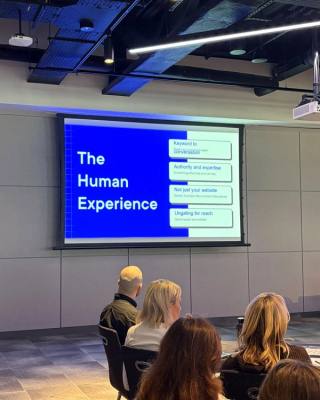Of all the tools we associate with content writing, we rarely consider our websites. But why is this?
A good website can be one of the most powerful and liberating elements of a content writer’s arsenal. Your website can help you produce more compelling, interesting, and attractive content, both on the site itself, and across your social media platforms.
First impressions matter
How exactly does a website improve your content? The most obvious way is through the better presentation of articles and other written pieces across your site. At Kooba we always collaborate with marketing teams to understand exactly what forms of content that they need to post onto their site, and then develop custom-made content pages accordingly. This can be more detailed than you might imagine. Your imagery, video, fonts and headings all influence the quality of content that you can produce, and need to be integrated into your CMS during the design process. Of course, if done properly, this can let you produce content previously unimaginable. For instance, check out:
- The interactive use of video and images at WePresent
- The gorgeous presentation of posts at EyeOnDesign
- The deliberately laid back and image-focused blog at Magnum Photos
Write about what matters
A massive issue that most content writers have experienced is the demand to communicate several competing messages simultaneously. Normally this means writing content that attempts to engage, inform, persuade and convert readers all at the same time. It shouldn’t come as a surprise that this rarely works.
The best content does one thing very well, and remains laser focused on a single cohesive message. When you have a website that can convert users effectively, this frees up your content to do what it does best; providing interest and entertainment to your audience. Without constantly having to sell to your customers, you can produce pieces that will actually provide value to them, further improving your brand associations. This means that more users will read your content, more will enjoy it, and more will then engage with your site.
This also just makes your content easier to produce. Instead of trying to write about everything and nothing at once, you can produce pieces that actually read well and convey a clear message. Likewise, with the necessity of immediately converting your audience being reduced, you can write on a wider (and more interesting) range of subjects than previously possible. Personally, I consider this a genuine luxury, and one which no content writer should take for granted.
Enhanced performance
One final benefit that your content receives from an improved website is the SEO performance gains enabled by faster loading times, a more logical layout, and a clearer information architecture. Again, a frequent bane of content writers is the demand to cram SEO keywords into your pieces, often at the cost of their readability and general quality. Again, a good website takes the pressure off you, and allows for a more natural and persuasive writing style (which Google actually recommends). Of course, if your priority is your SEO ranking, then you can focus on that in your content, and see your ranking further enhanced by a high performing website. It's a win-win scenario, and one which empowers you to choose the upsides that best suit your specific marketing plan.
Each to their own
The beauty of a good website is that it provides marketing benefits you never imagined it would. By providing a secure conversion pathway and a clear value proposition, your website frees your content from these responsibilities. In doing so, it opens the door to more engaging, exciting, and attractive work, which drives yet more traffic to your site. It's a powerful synergy, and one only truly appreciated by those who have actually experienced it. As somebody with the pleasure of working with a great website, I cannot recommend it enough.









